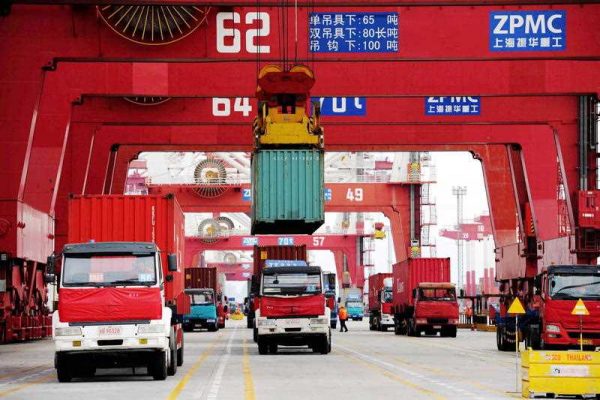The career prospects of Chinese officials are dependent on delivering economic growth and creating jobs for millions of new jobseekers every year. This explains why local governments are willing to borrow heavily from banks and splurge money on infrastructure projects. Building things is an easy way to beef up your GDP growth figure.
Delivering stronger and faster GDP growth year after year has become something of a national sport. Beijing will set a national target and then other provinces and cities will scramble to set higher targets, hoping to catch the attention of their bosses. Chinese statisticians have to go through the embarrassing annual ritual of smoothing out the huge disparity between national and provincial data during the GDP reporting season.
However, there are encouraging signs that this unhealthy national obsession is undergoing some subtle but profound changes. Shanghai, as one of China’s largest metropolises and a city with per capita income more than US$10,000 a year, has just abandoned its official GDP growth target for the first time in the city’s history.
In his work report to the local legislature, the mayor of Shanghai revealed the government would not set an official target for 2015. The city’s Bureau of Statistics reported days earlier that the local economy grew 7 per cent last year, the slowest pace since 1991.
In a revealing interview with the Chinese edition of the Financial Times, the party secretary Han Zhen told the newspaper that the municipal government no longer uses GDP growth as a key performance indicator.
‘When I first became Shanghai mayor five or six years ago, we had a GDP performance review for local county and district chiefs. However, there is only one government department that still cares about the GDP figure, and that is the Bureau of Statistics,’ he said, ‘Do I care about GDP growth figure? Not really. I just need to look it at the end of year.’
Instead of focusing on the raw growth number, Mr Han said he wanted to focus on ‘quality’ and ‘efficiency’ and the city’s contribution to the country. ‘It should be reflected in our contribution to innovation which includes institutional innovation such as the Shanghai Free Trade Zone,’ he said.
The party boss of Shanghai is only one of many senior officials who have played down the importance of GDP growth recently. The governor of the People’s Bank of China, Zhou Xiaochuan, said the government needed to focus more on structural reform than GDP growth.
‘If the Chinese economy grows more slowly but more sustainably, I think it is actually good news,’ he said. ‘If the government chases after a higher growth rate, this would to a certain degree impact on the pace of structural reform. I think more and more people care about reform and wish for a slower pace of growth in exchange for stronger reform on structural change.’
Many of the country’s leading economists and commentators, such as Caixin’s Hu Shuli, have called for Beijing to abandon the national GDP growth target or at least lower it to a more sustainable level such as 6 per cent or even 5 per cent. China’s business tycoons such as Ren Zhengfei of Huawei and Jack Ma of Alibaba have all voiced their support for slower growth.
‘When we have constant fast growth, there must be a problem. We will never see blue skies again, we can’t see quality. China must focus on the quality of economic growth,’ he told American TV host Charlie Rose at Davos.
But don’t expect Chinese officials to abandon their enthusiasm for building things overnight. Old habits die hard. For a lot of economically under-developed regions such as the central and western part of China, fostering GDP growth will continue to be the main game in town.
It is evident that there is serious rethinking going on at the top echelons of Chinese policymaking. Many now believe that the obsession with GDP growth is causing more harm than good. This is good news for China, but not necessarily for regional commodities exporters, like Australia. Toxic smog, polluted rivers, undrinkable water and depleting forest will eventually put a stop to China’s growth.
For China watchers, it is also about time we dampen our obsession with GDP figures. Seven per cent growth is not really the end of the China miracle. It is far more important to look at whether Beijing is making progress on important reform initiatives such as financial liberalisation, environmental protection and fiscal reform.
These efforts will determine whether China’s economy will stay in a healthy shape for years to come.
Peter Cai is an Australian journalist and a former Commonwealth Treasury policy analyst. The views in this article are his own and not those of his current or former employers.
This article was originally published here on Business Spectator.

